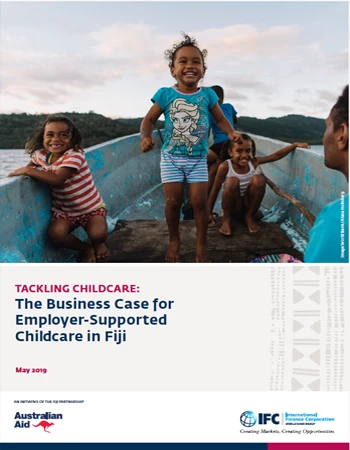This study demonstrates the need and appetite for affordable, accessible and quality childcare services among working parents in Fiji. The study finds that each year, businesses and the public sector in Fiji are losing an average of 12.7 workdays per employee due to the responsibilities of working parents. Absenteeism, lateness, low productivity, distraction, exhaustion and stress – this is the struggle of juggling work and being a parent in a country where childcare options for children aged zero to five are limited, unregulated and inaccessible to most of the population.
The study clearly demonstrates that childcare responsibilities are having significant impacts on mothers and fathers and their ability to consistently perform at work and focus on their job. The challenge of working and raising children in Fiji affects the choices they make about the type of work they do; the career goals they aspire to achieve; the hours they work and whether they stay in the workforce at all. This poses a key constraint on women’s participation and re-entry into the workforce in particular, which is already a challenge in Fiji with just 37 percent of women formally employed in Fiji, compared to 72 percent of men.
Based on the study’s findings, the report demonstrates the business case for employer-supported childcare and outlines a range of possible actions for employers, the government and other stakeholders to support working parents in Fiji.
